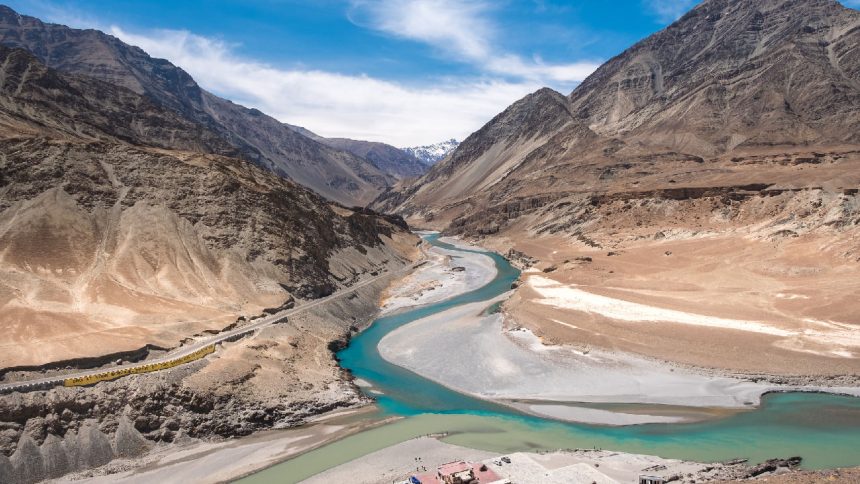New Delhi: Pakistan today said it views the Indus Water Treaty with India as “important” while expressing that New Delhi will also continue to adhere to the provisions of the bilateral pact that was signed 64 years ago. This is in response to India’s formal notice to Islamabad seeking a review of the treaty.
On August 30, India formally notified Pakistan of its request to review the Indus Water Treaty (IWT), citing “fundamental and unforeseen” changes in circumstances, including the impact of persistent cross-border terrorism.
Signed on September 19, 1960, after nine years of negotiations, the IWT was established to manage the six transboundary rivers in the Indus River Basin.
Despite being one of the key agreements between India and Pakistan, the treaty has remained intact and been upheld through wars and periods of tension between the neighbouring countries.
Replying to a query posed on the notice sent by India, Pakistan’s Foreign Office spokesperson Mumtaz Zahra Baloch said, “Pakistan considers the Indus Water Treaty as an important one and hopes that India will also comply with its provisions”.
She noted that both countries have an established mechanism through their Indus Commissioners, where all treaty-related issues can be discussed. She emphasized that any steps to address concerns about the treaty must be taken within the framework of the agreement.
What is the Indus Water Treaty
As per the Indus Water Treaty, Pakistan receives the full flow of water from the three western rivers—Chenab, Jhelum, and Indus—while India has full rights over the Sutlej, Beas, and Ravi rivers.
Out of the total water supply of 207.2 billion cubic metres, India’s share from the three allotted rivers is 40.7 billion cubic metres, or approximately 20%, while Pakistan receives 80%, as per the treaty’s provisions.
Why India wants review of Indus Water Treaty
New Delhi raised several concerns, including shifts in population demographics, environmental challenges, and the need to accelerate clean energy development to meet India’s emission targets. India has planned multiple hydropower projects on its side of the border.
Another key reason for seeking a review of the treaty was the ongoing impact of cross-border terrorism. This marks the second time in over a year and a half that India has formally requested a modification of the Indus Water Treaty.
In January of last year, India issued its first notice to Pakistan, seeking a review and modification of the treaty due to Islamabad’s “intransigence” in addressing certain disputes.
